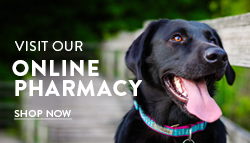Blog

Realizing that your furry companion is pregnant can be both wonderful and stressful. The American Veterinary Medical Association stresses that the needs of dogs change when they become pregnant. Your dog will need more attention and understanding at this stage. Here are details to consider to care for your expectant dog.
Limit Your Dog’s Exercise
Once your dog becomes pregnant, you should cut down your dog’s exercises during the first two to three weeks. This will improve the attachment of the developing embryos. After this critical time, you can return to your dog’s regular exercise routine. You can continue the regular exercises while your dog’s belly becomes larger. When the last trimester arrives, cut it again. Change the walks from long to short and more frequent ones. This can help your dog maintain enough energy to sustain and carry the puppies.
Provide the Right Nutrients
This is one of the most important things you can give your expectant dog. Good nutrition allows the puppies to develop in the best way possible. Choose high-quality dog food. At the same time, see that your dog keeps a healthy pregnancy weight. If your dog has been consuming the right foods, a dramatic change to her diet is not required. Consult your vet at Bergen County Veterinary Center before you increase your dog’s food intake.
Most veterinarians advise dog owners to take it slow when giving more food during the last weeks of gestation. Do this until she intakes about 35 to 50 percent more than usual. Small, frequent meals can help keep her comfortable. Huge meals may enlarge her belly too much. This can cause unnecessary discomfort.
Have Prenatal Checkups
These checkups must start before your dog has a chance to breed. Update all her shots. This will prevent infectious diseases from transferring to the puppies. Deworming your dog regularly can remove intestinal parasites before breeding. Your vet can give the correct type of deworming medication in the third trimester of pregnancy. Continuing the deworming 14 days after giving birth can lower your puppies’ risk of getting hookworms or roundworms. Staying parasite-free will allow the puppies to thrive.
Plan for the Birth
Discussing the birth with your vet should happen weeks before the calculated labor date. Plan with your pet sitter and family. Constructing a whelping box is ideal at this stage. Place this private box in a quiet corner of the house. This will give your dog enough time to get used to the whelping box.
Dedicating one room for your dog’s delivery can provide your dog enough space to concentrate on delivering the pups. Discussing the possibility of spaying your dog can occur, especially if the pregnancy is an unwanted one.
Knowing how to care for your pregnant canine companion can give way to a safe and healthy birthing. At Bergen County Veterinary Center, we help our fur parents provide the best care for their furry companions. Visit our facility in Waldwick, New Jersey, for an in-person consultation. Call us at 201-205-2500 to set an appointment or inquire about our pregnancy and birthing care packages.






